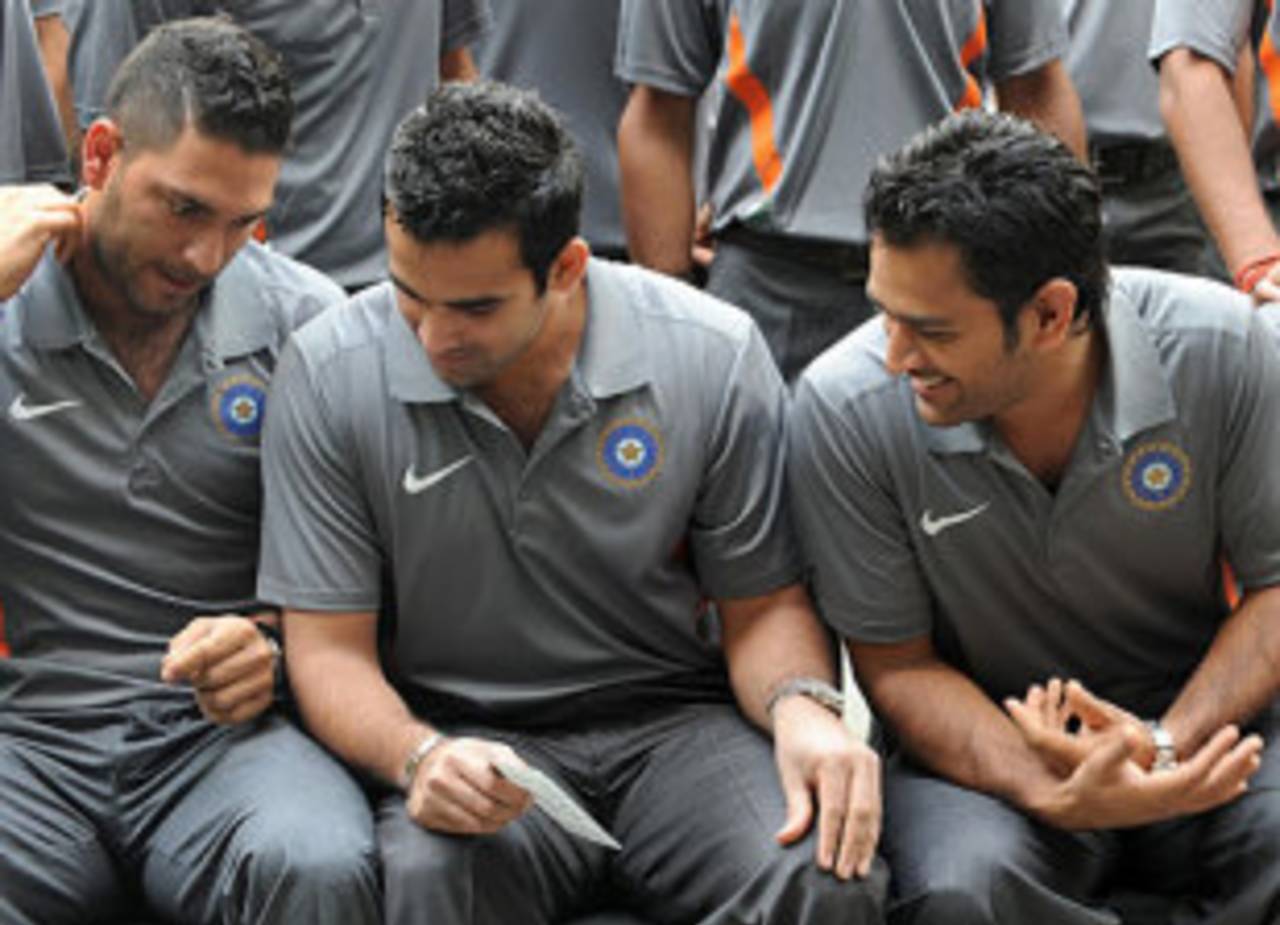BCCI to discuss anti-doping code
The BCCI will hold an emergency meeting of its working committee on Sunday to discuss the way forward in implementing the ICC's new anti-doping regulations at the domestic and international level
Cricinfo staff
30-Jul-2009

Yuvraj Singh, MS Dhoni and Zaheer Khan are part of the International Registered Testing Pool • AFP
The BCCI will hold an emergency meeting of its working committee on Sunday to discuss the way forward in implementing the ICC's new anti-doping regulations at the domestic and international level.
According to an ICC board resolution, all member countries have to submit to the ICC's WADA-compliant code by July 31. However, concerns have been expressed by India players in the testing pool over privacy and the procedure involved, which includes submitting a mandatory form to the ICC informing the governing body of their whereabouts.
The 11 Indian cricketers named in the International Registered Testing Pool are Harbhajan Singh, Gautam Gambhir, Irfan Pathan, Zaheer Khan, MS Dhoni, Yuvraj Singh, Munaf Patel, Sachin Tendulkar, Virender Sehwag, Jhulan Goswami and Mithali Raj. Reports suggest that they are yet to submit their 'wherabouts' forms.
The ICC's Anti Doping Policy now requires (as per a mandatory instruction from WADA) players in the testing pool to inform the ICC 90 days in advance (each quarter) about a location and time that they will be available each day in that quarter for testing.
If the player is not in the location at the time specified he will have a 'strike' recorded against his name. Three such 'strikes' and the player will have breached the code and could face a two-year suspension from the game. Tim May, the chief executive of the Federation of International Cricketers' Associations (FICA), echoed the players' concerns when he told Cricinfo in May that there were concerns about privacy and practicality.
"The administration responsibility is extreme and the whole system, whilst designed to catch the drug cheat, has a high inherent risk of catching athletes that just aren't administratively inclined," May said.